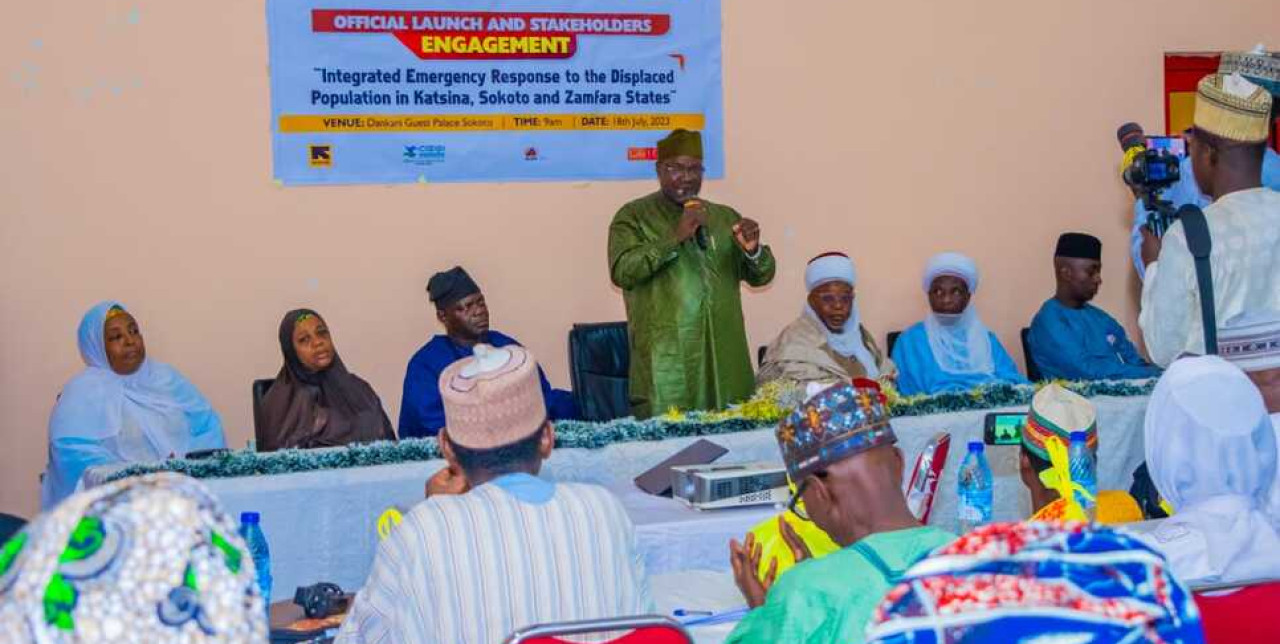01-09-2023 | di COOPI
Nigeria. More than 14,000 people helped in Sokoto
Following the recurrent interventions of the organized armed groups (OAGs) in North-West Nigeria, which further weakened the poorly funded and fragile health system, COOPI – Cooperazione Internazionale has implemented the project “Integrated Emergency Response to the Displaced Population in Katsina, Sokoto, and Zamfara States”.
Through the funding of the USAID’s Bureau of Humanitarian Assistance (BHA), the project is conducted by a consortium led by IRC (International Rescue Committee) together with COOPI, ALIMA, and Life Helpers Initiative (LHI), and ensures access to coordinated, lifesaving multisectoral assistance for crisis-affected displaced and host population.
COOPI’s area of activity is in Sokoto state, one of the three areas most affected by criminal and armed groups, marked by lack of access to WASH facilities and loss of means of livelihood. There, together with LHI, 14265 people between displaced people and host population are receiving integrated services in Health, Nutrition, Water Sanitation and Hygiene (WASH), Protection, and multipurpose cash assistance. With a focus on health assistance, people are provided with essential healthcare services, including reproductive health.
The project approach is coordinated with the Government in conformity with a participatory selection criterion and in the respect of the “Do Not Harm” principle. COOPI will collaborate with Government stakeholders such as; the Ministry of Women and Children Affairs, Ministry of Budget and Economic Planning, Ministry of Water Resources, Ministry of Health, Ministry of Humanitarian Affairs, Ministry of Justice, Ministry of Education, FIDA, Community leaders at State and LGAs, FIDA, Security Agencies, Religious leaders, INGOs/NGOs/CBOs/FBOs.
COOPI has been operating in Nigeria since 2014 alongside the vulnerable population affected by conflict and climate shocks. The support project in the Sokoto state is possible thanks to a network of three offices distributed in the area: a general coordination in Abuja, three field offices in Geshua, Damaturu (Yobe State) and in Sokoto (Sokoto State).




 Nigeria
Nigeria